What Is A Zirconium Implant Procedure
Zirconium implants, FDA-approved dental implants crafted from zirconium metal, offer a viable solution for replacing missing or damaged teeth. These implants involve surgically implanting an artificial tooth root into the jawbone, which gradually integrates with the bone. Zirconium implants serve as an alternative to the widely used titanium implants, boasting biocompatibility with the human body and a natural tooth-colored appearance that appeals to many patients aesthetically.
Studies indicate that zirconium implants exhibit success rates akin to titanium implants, ensuring durability and sustained functionality over time. However, their utilization may entail a higher cost compared to titanium implants due to the premium materials and manufacturing procedures involved. Ultimately, the choice between zirconium and titanium implants hinges on individual patient preferences and requirements, necessitating thorough discussion and guidance from a qualified dental professional.
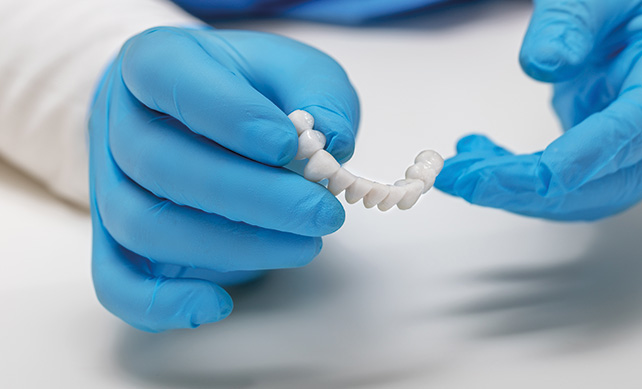
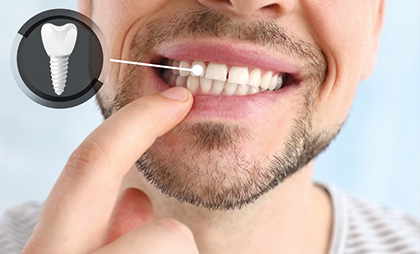
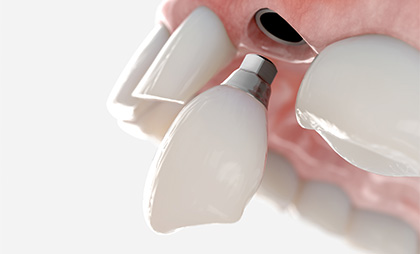
Candidates For Zirconium Implants
In general, individuals eligible for traditional titanium dental implants can also consider zirconium implants. Nonetheless, there are instances where zirconium implants might be preferable. Some factors indicating suitability for zirconium implants include:
Metal allergies or sensitivities: Zirconium implants offer a metal-free solution for patients with metal allergies or sensitivities.
Aesthetic preferences: Zirconium implants, being tooth-colored, are more visually appealing, particularly for frontal placements where visibility is a concern.
Thin gums or jawbone: Zirconium implants may be favored in cases of thin gums or jawbone structure.
Tooth sensitivity: Zirconium implants, with lower thermal conductivity compared to titanium, can be more comfortable for those sensitive to temperature variations.
Existing metal restorations: Patients with pre-existing metal restorations may opt for zirconium implants to maintain consistency in their oral environment.
It’s crucial to understand that individual circumstances vary. The decision to opt for zirconium dental implants should be made in consultation with a qualified dental professional who will assess the patient’s unique needs and recommend the most suitable implant type.
What Is The Difference Between Zirconium Implants And Zirconium Crowns
Zirconium implants and zirconium crowns are both dental restorations crafted from the same material, zirconium. Despite sharing this common material, they diverge in several significant aspects:
Functionality: Zirconia dental implants serve as replacements for missing teeth, offering various tooth replacement options. Conversely, zirconium crowns are utilized to repair damaged or decayed teeth.
Placement: Zirconium implants are surgically inserted into the jawbone, integrating with the bone structure. Zirconium crowns, however, are affixed onto existing teeth, covering them entirely.
Composition: Zirconium implants comprise a post implanted within the jawbone, an artificial tooth, or a dental crown anchor. On the contrary, zirconium crowns are standalone restorations that envelop the entire tooth.
Longevity: Zirconium implants are engineered as enduring solutions for missing teeth, capable of lasting numerous years with proper maintenance. Although sturdy, zirconium crowns may necessitate more frequent replacement due to wear and tear or alterations in the underlying tooth structure.
Cost Consideration: Zirconium implants typically entail a higher expense compared to zirconium crowns, primarily due to the additional surgical procedures and materials involved.
It’s essential to recognize that both zirconia dental implants and zirconium crowns effectively restore dental function and aesthetics. Nonetheless, they cater to distinct needs and circumstances. Patients should engage in discussions with their dentist to determine the most suitable restoration option tailored to their specific requirements.

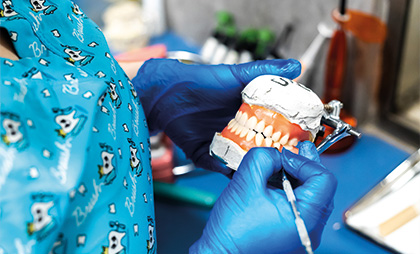
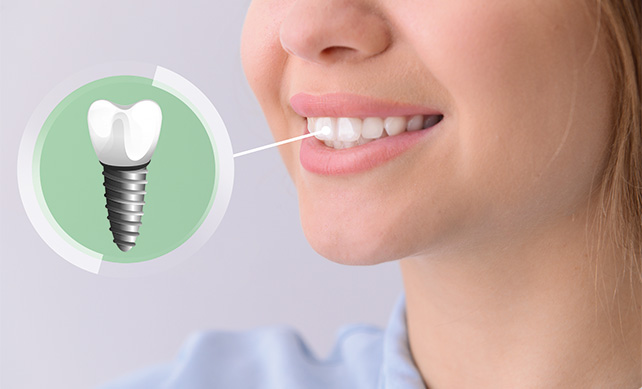
How To Take Care Of Zirconium Implants
Proper maintenance and care of zirconium implants are crucial for ensuring their longevity and effectiveness. Here are some recommendations for maintaining zirconium implants:
- Maintain regular brushing and flossing: Similar to natural teeth, zirconium implants require consistent brushing and flossing with a soft-bristled brush and gentle toothpaste to prevent plaque and bacteria buildup.
- Utilize a water flosser: Incorporating a water flosser can aid in effectively cleaning difficult-to-reach areas surrounding zirconium implants.
- Steer clear of hard foods: Avoid consuming hard and crunchy foods such as ice and hard candies, as they can potentially cause damage or fractures to zirconium implants.
- Schedule routine dental visits: Regular dental check-ups are essential for monitoring the health of both the implant and adjacent tissues. Prompt identification and treatment of any issues can be addressed during these visits.
- Quit smoking: Smoking can impede the healing process and heighten the risk of implant failure. Ceasing smoking can enhance the resilience and durability of zirconium implants.
- Consider using a nightguard: If you suffer from teeth grinding or clenching, wearing a nightguard can safeguard your zirconium implant against potential damage during sleep.
By adhering to these guidelines and maintaining a stringent oral hygiene regimen, you can contribute to the prolonged success of your zirconium implant.



